Home Remedies For Vaginal Itching
By Dr Rajeev Singh +2 more

Get,

to manage your symptom
Get your,


4 Cr+ families
benefitted

OTP sent to 9988776655



You’ve successfully subscribed to receive
doctor-approved tips on
Whatsapp

Get ready to feel your best.

Hi There,
Download the PharmEasy App now!!


Register to Avail the Offer
Send OTPBy continuing, you agree with our Privacy Policy and Terms and Conditions

Hi There,
Sign up on PharmEasy now!!
Trusted by 4 crore+ families

OTP sent to 9988776655



You have unlocked 25% off on medicines




Code: NU25
By Dr Rajeev Singh +2 more
Table of Contents
Itching at the vagina can make women uncomfortable and create difficulty in concentrating on tasks. In addition, this vaginal itching can be a symptom of a more severe problem. For example, vaginitis is a terminology used to describe various disorders that cause the vagina to become inflamed and infected. Itching in the vagina can be a symptom of vaginitis1. There are various causes for your vagina to itch. Read on to find out more about the symptoms and causes of vaginal itching and how to take care of it.
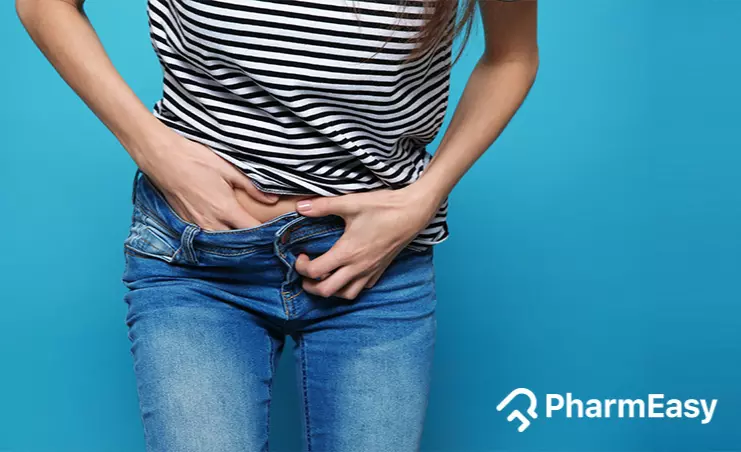
There are different types of infections that may cause vaginal itching and irritation. Here, the vaginal itching is accompanied by vaginal discharge. The infections are:
Vaginal itching is mostly due to bacterial or fungal overgrowth. Maintaining proper hygiene of the intimate area helps to maintain the vaginal PH and prevents the overgrowth of microorganisms.
Dr. Nikhil Yadav, MBBS MD, CCEBDM
The symptom of vaginal itching involves itching on the skin of the vagina and the surrounding area (vulva). This symptom is sometimes accompanied by vaginal discharge2.

You can use warm coconut oil to ease vaginal irritation and itching. Tea tree oil can also be used by dropping a few drops in a warm water bath and soaking the pelvis area. Caution should be exercised while using tea tree oil as it might cause a burning sensation if used in large quantities3.
You can make the following changes in the diet to help manage vaginal itching:
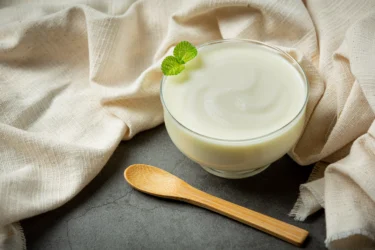
You can try yoghurt and probiotics that contain lactobacillus. There is some scientific evidence that yoghurt and probiotics containing lactobacillus can reduce vaginitis infections1.

Limiting sugary foods to prevent the growth of yeast is also recommended. You can ask your healthcare provider if this is something you can adopt1.
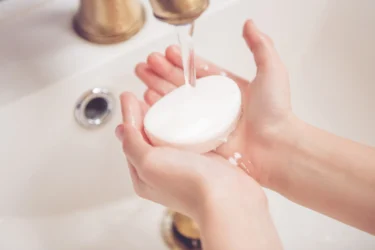
You can follow these measures to take care of your vagina and keep the area clean:
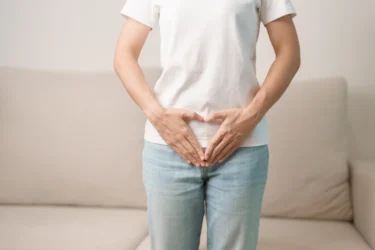
Maintaining sexual health is an important factor to help prevent catching or the spread of infections; you can maintain good sexual health by:
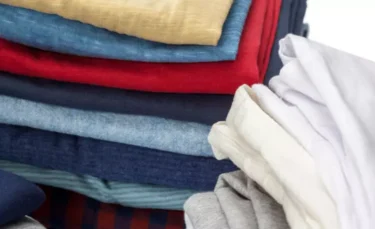
I always advise my patients to maintain proper hygiene and change their sanitary napkins every 4-5 hours to avoid itching and rashes. Failing to do so can cause discomfort and skin irritation.
Dr. Arpit Verma, MBBS, MD (Pharmacology)
Also Read: How to Stop Bad Period Smell: Research-Based Tips and Home Remedies
Also Read: Effective Home Remedies For Period Pain
Vaginal itching or itching at the site of the vagina and vulva can have many underlying causes. Some of them are lack of good hygiene habits, certain infections, the presence of irritant chemicals in products, and menopause. Suppose the itching is due to chemical irritants. In that case, you can improve the symptoms by avoiding the products that contain these chemicals. If the vaginal itch you are experiencing is due to infection by bacteria or fungi, you need to seek medical treatment.
Don’t be embarrassed to talk about your symptoms; talking to a healthcare provider will help you know and get rid of the cause and symptoms.
Also Read: Effective Home Remedies For PCOS
You can involve yoghurt and probiotics in your diet to help with vaginal itching. Apart from these diet changes, you can make some lifestyle changes and maintain sexual health and hygiene to prevent vaginal itching1,2.
Vaginal itching can be a symptom of health conditions like infections. If you have vaginal discharge, may have had exposure to sexually transmitted infections, or have fever or pain in the pelvis or belly area, you need to contact your healthcare provider2.
You need to follow good hygiene habits and maintain good sexual health. You need to also know how to properly clean the genital area while bathing or showering. You should also follow good toilet habits by wiping correctly after using the toilet, always from front to back and washing thoroughly before and after using the bathroom. Avoiding sugary foods in your diet will also help1,2.
Vaginal discharge is normal. The vagina produces a discharge that is either clear or slightly cloudy. During the menstruation period, the amount and consistency of the discharge may change. If you experience a sudden change in the colour, amount, odour, or consistency of discharge, you should contact your healthcare provider1,2.
If you experience other symptoms like vaginal discharge, pain in the pelvic area, or fever, along with vaginal itching, you should contact your doctor, as it can be a sign of infection2.
Disclaimer: The information provided here is for educational/awareness purposes only and is not intended to be a substitute for medical treatment by a healthcare professional and should not be relied upon to diagnose or treat any medical condition. The reader should consult a registered medical practitioner to determine the appropriateness of the information and before consuming any medication. PharmEasy does not provide any guarantee or warranty (express or implied) regarding the accuracy, adequacy, completeness, legality, reliability or usefulness of the information; and disclaims any liability arising thereof.
Links and product recommendations in the information provided here are advertisements of third-party products available on the website. PharmEasy does not make any representation on the accuracy or suitability of such products/services. Advertisements do not influence the editorial decisions or content. The information in this blog is subject to change without notice. The authors and administrators reserve the right to modify, add, or remove content without notification. It is your responsibility to review this disclaimer regularly for any changes.
Comments

Leave your comment...
You may also like
Comments